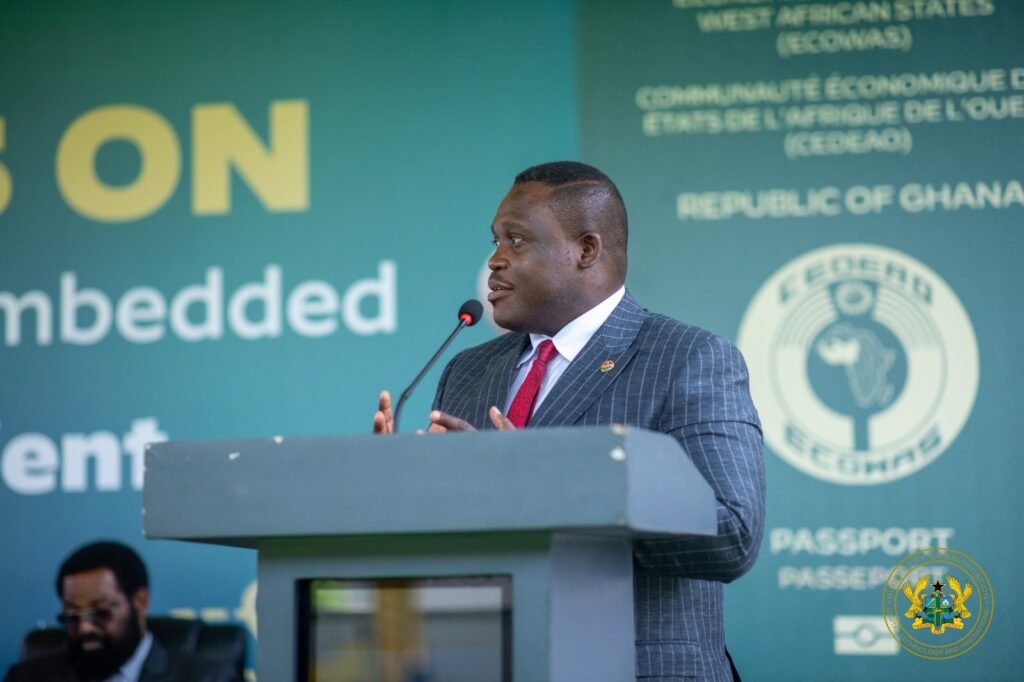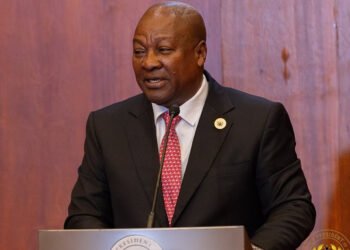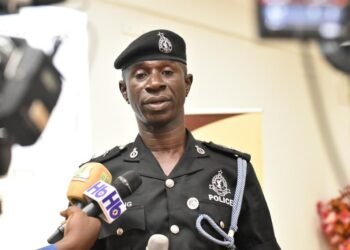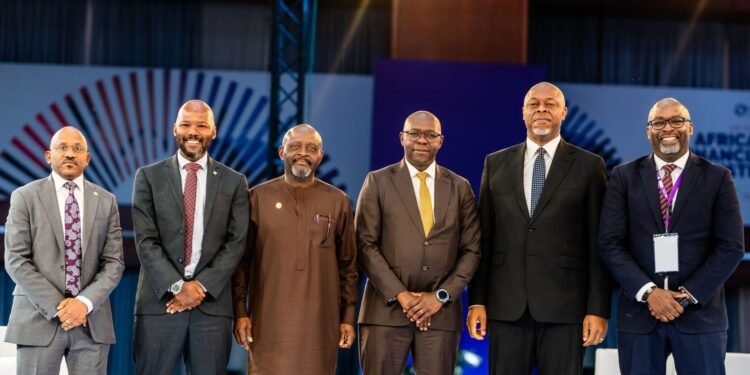Ghana’s Minister for Communications, Innovation and Digital Technology, Hon. Samuel Nartey George, has strongly criticised sections of Ghana’s media for what he described as unethical and insensitive coverage of the August 6, 2025, fatal helicopter crash.
Speaking in the wake of the tragedy that claimed the lives of several high-profile individuals, the Minister said parts of the early reportage breached professional standards and failed to balance the urgency of breaking news with respect for victims and their grieving families.
“I think that as a people, we have an expectation of the media to inform us, to entertain, and to educate us — and the media tries to play that role. But I had cause to call a few traditional media house CEOs and ask them to take down certain footage that was being shown.
“I thought that was unfortunate, and I believe it goes against the ethics of the profession.”
hana’s Minister for Communications, Innovation and Digital Technology, Hon. Samuel Nartey George
According to the Minister, some of the most graphic and distressing footage that drew public condemnation on social media had in fact been live-streamed by established media houses.
As journalists, the minister insisted that there must be a balance between breaking the news and respecting the privacy of the victims, especially where grief is involved. “There are critical lessons we must learn from this,” he stressed.
Hon. Sam George said that while the media generally did well in keeping the nation informed, there was a “mixed bag” in terms of the quality and ethics of the coverage.

He thanked telecommunication companies MTN, Telecel, and AT for their swift cooperation in helping the government manage the crisis and communicate with the public.
Recounting the events immediately after the crash, the Minister revealed that the situation was complicated by the speed at which disturbing videos were being shared via WhatsApp.
“The unfortunate situation is that most of them were circulating on WhatsApp, and that is a platform that is not controlled by any country; it’s a private business.”
hana’s Minister for Communications, Innovation and Digital Technology, Hon. Samuel Nartey George
At the time, he said, the government had not yet completed official communication with the families of the victims, raising concerns about the psychological impact on relatives — particularly children old enough to access social media.
“I was worried about the mental health of those kids and the spouses. Such tragedies need to be broken in a certain way, and I thought about the insensitivity. One was to shut down the internet in the country to prevent further spread of the videos…
“But that would also come with its own consequences, because many of you stream the news, so you could have a ripple effect that would actually be worse than what you are trying to fix.”
Ghana’s Minister for Communications, Innovation and Digital Technology, Hon. Samuel Nartey George
Targeted Interventions
Ultimately, he decided against an internet blackout, opting instead for targeted interventions. The Ministry quickly engaged the Cyber Security Authority to reach out to Meta, the owners of WhatsApp, to explore possible actions to curb the spread of the videos.

Hon. Sam George disclosed that he personally contacted senior executives at the company to expedite the process. “They assured me they were going to look into the matter,” he said.
Simultaneously, the Minister reached out to the National Communications Authority (NCA) and directed them to liaise with telecom company CEOs to support the government’s communication strategy.
“I personally placed calls to the three CEOs and said they should work with the NCA. We sent out about 30 million text messages within a space of two hours, and the telecom companies bore the cost for this”.
Ghana’s Minister for Communications, Innovation and Digital Technology, Hon. Samuel Nartey George
The mass messaging campaign was aimed at countering misinformation, calming public anxiety, and ensuring accurate information reached citizens while respecting the families’ right to privacy.
The Minister described this as a crucial step in managing both the national conversation and the emotional impact of the tragedy. While acknowledging that the media plays a vital role in national emergencies, Hon. Sam George insisted that ethical safeguards must not be abandoned in the pursuit of speed.
“There must be a balance between getting the story first and doing the story right,” he said, adding that the incident should serve as a learning point for journalists and editors across the country. The Minister’s comments come as public debate intensifies over the responsibilities of the media in covering sensitive events.

Advocates for press freedom have argued that restrictions on content should not be used to stifle legitimate reporting, while others have echoed the Minister’s concerns, calling for greater adherence to ethical standards when reporting on tragedies.
For Hon. Sam George, the lesson from the incident is clear — technology and media power must be matched by responsibility and empathy, underscoring the need for both the media and the public to reflect on how sensitive information is handled in times of crisis.
READ ALSO: Nigeria’s Top Indigenous Oil Producers Surge Output in H1 2025






















